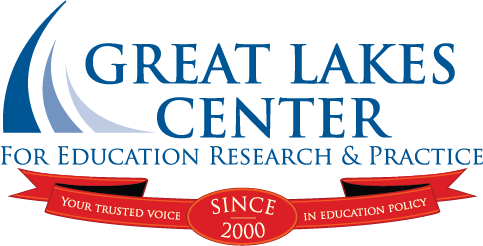
Think Twice Weekly Report
JULY 22, 2023 - JuLY 28, 2023
The Think Twice Weekly Report compiles public education-related policy reports, research and articles of interest to policymakers, educators and stakeholders. This list is not exhaustive but is meant to highlight recent reports that may be used to support or undermine the work of our subscribers in supporting public schools. We encourage you to take a moment to scan these reports and determine if they may be used by policy makers to assist or erode your mission.
 Policy Reports
Policy Reports
School Choice
Source: Brookings
Date: 7/27/2023
Can school choice support district-led efforts to foster diverse schools?
"Scholars generally agree that in most circumstances choice contributes to racial and socioeconomic school segregation. School choice policies have many gradations-and how school choice programs are designed play an important, but not well-studied, role in shaping families’ school choices. Racial preferences and anti-Black racism shape how parents navigate choice contexts-a reality that creates acute tensions that districts must navigate in the design of choice systems."
Community Schools
Source: Learning Policy Institute
Date: 7/11/2023
Federal Funding Sources for Community Schools
This report includes a comprehensive but not exhaustive description and list of federal programs that could fund community schools. While most community schools are funded by a combination of federal, state, local, public, and private funds, this report focuses on the numerous federal opportunities to start, support, and sustain whole child approaches to learning and development through community schools.
Reading Policy
Source: Al Shanker Institute
Date: 7/19/2023
Reading Reform Across America: A Survey of State Legislation
Reading Reform Across America documents how state legislatures nationwide have responded to reading reform challenges. Specifically, the report examines reading-related legislation enacted between 2019 and 2022. The Al Shanker Institute analyzed a total of 223 bills enacted in 45 states and the District of Columbia, examining over 40 features, such as teacher preparation, professional development, and curriculum, to name a few.
 Reports Reviewed
Reports Reviewed
GLC seeks to ensure that policy briefs impacting education reform are based on sound, credible academic research. Below are reviews conducted with GLC support.
Think Again: Do Charter Schools Drain Resources From Traditional Public Schools?
Source: Thomas B. Fordham Institute
Reviewed by: Huriya Jabbar, University of Texas at Austin
The report references most of the relevant literature and fairly assesses the evidence. However, it makes claims and policy recommendations that are untested empirically and unwarranted based on the research. For example, it concludes that districts' higher expenditures in a charter environment are due to policies protecting traditional public schools from revenue fluctuations caused by charter competition. In doing so, it fails to consider other possible explanations, such as charters strategically enrolling relatively few students who are particularly costly to educate.
 What We're Reading
What We're Reading
Research and articles that we want to highlight for subscribers as potential resources:
Education was once the No. 1 major for college students. Now it's an afterthought.
By: Aimee Picchi, Sanvi Bangalore, CBS News
Five decades ago, the U.S. was training an army of college students to become teachers, with 1 in every 5 bachelor's degrees earned in the field of education. That guaranteed a steady pipeline of educators entering the profession, a vital resource for schools around the country, and for the economy as a whole. Today, education is an afterthought for many college students, who are more likely to study business, engineering, and even the visual and performing arts, according to data from the National Center for Educational Statistics.
How Matthew McConaughey Will Make It Easier for Schools to Get Safety Grants
By: Evie Blad, EducationWeek
McConaughey announced the Greenlights Grant Initiative in an email to 20,000 district leaders around the country. The effort aims to help schools navigate the complicated grant process necessary to access more than $1 billion in federal funding for school security measures and child well-being.
In Fact or Fallacy? An In-Depth Critique of the CREDO 2023 National Report
By: Network For Public Education
CREDO’s report is meant to compare test score growth in math and reading for students in charter versus public schools. But once the curtain is pulled back, the conclusions are misleading to the public as well as policymakers who depend on accurate research to make informed education-related decisions and policies.
What did a big new study of charter schools really find?
By: Matt Barnum, Chalkbeat
In the small world of education research, the Stanford-based institute CREDO is a big name.The study is likely to be a key data point for years to come in continued policy debates over charter schools. But are the results as conclusive as the Journal and others have suggested? Not quite.
Demystifying the Science of Reading
By: y Esther Quintero, Albert Shanker Institute
This blog by Esther Quintero, Senior Fellow at the Al Shanker Institute, highlights key points in the current reading debate. She calls for a balance between research, resources for educators and collective professional autonomy in decision making.
